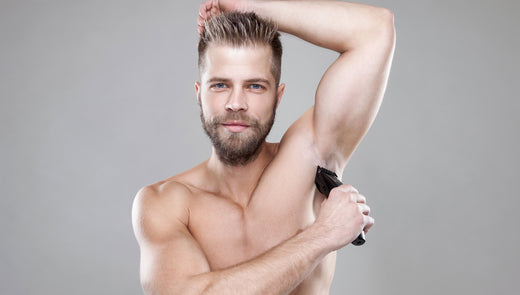Your Cart is Empty

Sweaty feet are a natural occurrence for most of us at one point or another. The sweat produced by our feet helps to keep them cool and the skin moist. However, because each foot has over 250,000 sweat glands, foot sweat can be troublesome for someone who suffers from hyperhidrosis or excessive sweating.
When sweat is excessive with no chance of evaporation, it causes smelly feet, also known as bromodosis. If foot odor becomes a regular occurrence, it can be embarrassing and anxiety-inducing when thinking about taking off your shoes.
However, just because you have sweaty feet doesn’t mean you’re stuck with smelly feet. Keep reading to learn what causes sweaty feet and tap into nine easy sweaty feet treatment options.
Occasional sweaty feet can be caused by several things, including physical exertion, higher temperatures, shoes that are too tight, or shoes that don’t “breathe.” Daily or excessive foot sweating may be attributed to a medical condition called plantar hyperhidrosis, which causes the foot’s many sweat glands to overproduce.
Like sweaty feet, encountering foot odor is a very common occurrence. It typically happens when sweat builds up on the feet without an outlet to evaporate. For instance, this can occur when shoes or socks become damp from sweat and don’t have a chance to completely dry out. When bacteria from your skin interact with (or feed on) the sweat on your feet – odor is sure to ensue.
Because each foot has over 250,000 sweat glands, foot sweat can be troublesome for someone who suffers from hyperhidrosis or excessive sweating.
The causes of sweaty feet can also be attributed to fungal infections. An example of a foot-based fungal infection is Athlete’s Foot.
If you have smelly feet, there is no reason to despair. Here are nine sweaty feet treatment methods you can use for how to stop sweaty feet.
Maintaining excellent foot hygiene is one of the best ways to prevent and treat smelly feet. The key processes in an effective foot hygiene routine include washing your feet with antifungal soap (daily), clipping your toenails (regularly), and even exfoliating your feet (biweekly).
Bacteria can build up quickly around dead skin. When bacteria interacts with sweat, this results in smelly feet. You can get rid of the dead skin cells by soaking your feet and then using a pumice stone or a scrub to remove the dead skin cells from your feet. For the best results, exfoliate your feet 2-3 times a week.
One of the causes of sweaty feet is damp or wet shoes. To avoid this, allow your shoes to dry out properly after each use. You can achieve this by either stuffing your shoes with newspaper after wearing them or you can alternate the shoes you wear each day.

Using insoles is a good way to keep sweaty feet dry. However, if they are not replaced frequently, sweat can build up in them and lead to smelly feet. Switch out insoles regularly and use disinfecting spray on them after they dry out.
Although deodorants and antiperspirants are typically used for the armpits, using them on the feet is an efficient way to reduce odor and/or sweating. Some antiperspirants are made specifically for feet. If you suffer from intense foot sweat, talk to your doctor about a prescription-strength antiperspirant to use on your feet. You can also powder your feet with cornstarch as an alternative.
Fungal build-up is another cause of stinky feet. Treat foot fungus with an antifungal soap or powder. Simply use the soap to wash your feet or use the powder after you wash your feet.
Epsom salt is a magnesium sulfate compound, and is known for its healing and soothing properties. To create a foot soak, dissolve ½ cup of Epsom into a basin or tub of warm water. Soak feet for 30-60 minutes and dry thoroughly. If you want to exfoliate your feet using Epsom salt, massage a handful of it on the dead or dry skin on your feet.
Another foot soak option is vinegar and water. Mix 1 part of white or apple cider vinegar into 2 parts of warm water in a basin or tub. Soak your feet for 10-20 minutes. Do not use a vinegar soak if there are any cuts, bruises, or sores on your feet.
Foot odor typically happens when sweat builds up on the feet without an outlet to evaporate.
Ejis dress socks with odor fighting silver (buy in our shop) are highly effective, attractive, and exceptionally comfortable. Silver anti-odor technology is embedded into every sock to stop odor-causing bacteria from building up. The terry loop design and mesh ventilation zones improve circulation and keep your feet dry and cool.
We’ve also compiled a list of the best socks for sweaty and smelly feet and the features to look for when purchasing socks if you have sweaty or smelly feet.
With these nine simple suggestions to treat your sweaty and smelly feet, you can finally bid farewell to embarrassing foot odor. And with a pair of Ejis dress socks in your arsenal, you can step out (of your shoes) with confidence.
This post was originally published in December 2019, and updated in September 2020, and January 2025.


